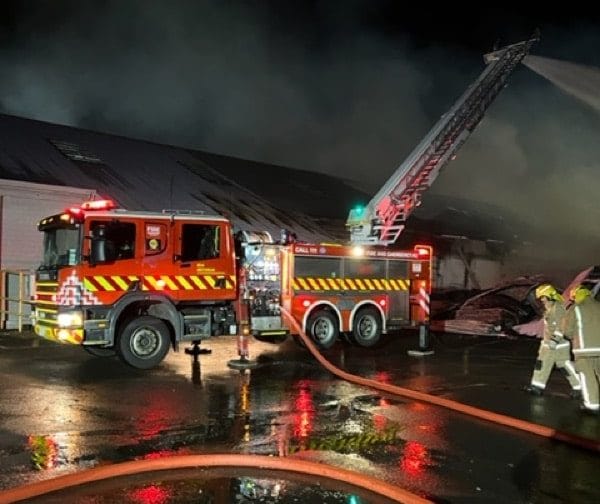The ‘fire crisis’ across New Zealand with professional fire fighters currently refusing to carry out some tasks is having a large impact across Southland.
FENZ Invercargill Fire Station union secretary and station officer Aaron Ramsey said all emergency calls were still being attended, but following strike action on June 13, they were now refusing to undertake some administration tasks.
The New Zealand Professional Fire Fighters Union (NZPFU) and Fire and Emergency New Zealand (FENZ) will be in mediation over their industrial dispute this month following a very successful, and public, campaign over social and mainstream media.
The campaign has put the spotlight on a large range of issues, which the NZPFU has labelled a ‘Fire Crisis’, and forced the Minister of Internal Affairs to step in.
The dispute came about following eleven months of negotiations that eventually broke down, leading to NZPFU members beginning strike action.
Aaron said one of the claims at the heart of the dispute is a chronic shortage of staff which is causing career firefighters to work upwards of 80 hours a week just to ensure trucks are fully crewed.
Each fire appliance is crewed by four firefighters 24 hours a day over a 10 hour dayshift, followed by a 14 hour nightshift. Invercargill has three appliances permanently staffed between its central station on Jed Street and the Kingswell Station on Stirrat St.
A ratio of 4.5 people per seat on the appliance is used to allocate a staffing establishment per brigade and this gives Invercargill a staff of 54. This ratio has not been changed since the 1980s.
He said staff now routinely work 24 hour shifts along with an extra day or nightshifts over what would normally be rostered days off.
“This is a significant amount of extra time away from family and friends, it has now reached crisis levels and the NZPFU wants to see the ratio increased to address the issue long term.”
They are also looking to get the work they do around medical response recognised.
FENZ currently respond to 96% of all cardiac and respiratory distress incidents alongside St John. It has done this since 2013 after entering into a Memorandum of Understanding with St John and Wellington Free Ambulance.
This MOH sees them responding to cardiac arrests, hangings, overdoses, seizures, stabbings, and a number of other life threatening conditions.
“While there are a range of support services offered in an attempt to deal with this, they are all after the fact, an ambulance at the bottom of the cliff. The NZPFU want to see greater psychological support along with training for staff on how to deal with traumatised, upset, and sometimes angry family and friends at the scene,” he said.
There are a raft of other concerns including an ageing increasingly unreliable fleet, and the increased risk of cancers – firefighting has just been listed as a Group 1A Carcinogenic Occupation by the World Health Organisation.
More details on the ‘fire crisis’ and the union’s claims can be found at firecrisis.nz and you can keep up to date on the campaign on Facebook at #FireCrisis. You can support Fire Fighters by sending a letter to MPs, go to firecrisis.nz/get-involved/


